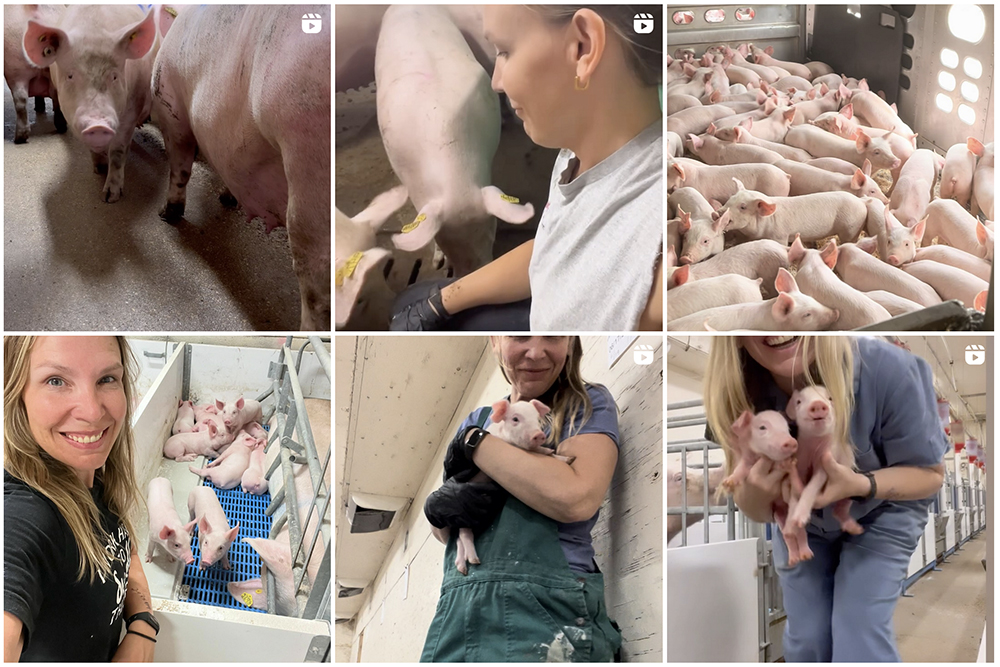This is the final instalment in a series of stories that Ed White filed this summer about the different approaches that can be taken when advocating for agriculture.
Have fun with it.
That seems to be the attitude that works with agriculture-themed social media, or at least that’s the feeling that pours out of accounts such as Southern Prairie Pigs’ videos and James Richardson and Sons Limited’s history posts.
Read Also

Saskatchewan puts crown land auction on hold
Auctions of Saskatchewan crown lease land are once again on hold.
Other stories in this series:
- VIDEO: Alltech documentary takes on anti-cow memes
- Farmer advocacy starts with building bridges
- Producers advised against fighting with trolls online
Did you know that James Richardson and Sons, Ltd. set up a radio station in 1927 in Moose Jaw to broadcast to farmers and rural communities? Indeed, the agricultural-based conglomerate set up CJRM, the first of a small empire of radio stations in Western Canada, which lasted until the network was sold in 1940.
You can find out all about that from Richardson’s LinkedIn social media account, which has regular and beautifully composed history pieces about the company’s extraordinary history.
For women’s history month the account presented the true story of Muriel Sprague Richardson, who assumed the presidency of the company in 1939 after her husband’s death. She not only remained president for 27 years, but became the first woman to head a major Canadian corporation and appears to have been a dynamic and progressive person.
If you have seen pictures of the Winnipeg Grain Exchange in its early decades, you’ve seen the giant blackboards on which prices were constantly updated so traders could know what was happening in Chicago and other commodity markets. That all changed with the introduction of the Reuter Ultrasonic Stockmaster, a terminal that allowed traders instantaneous access to live quotes in other markets. That history is also deftly told in a post.

The posts are composed by Barb Perreaux of JRSL and present a wonderful level of depth and appreciation for Richardson, a giant in Canadian agri-business for more than a century, but which sometimes seems a mystery.
The account helps demystify Richardson while building its brand, which seems like pretty good communications management.
It’s super-fun working in a pig barn. No, really, it is.
Pigs are adorable, the workers have a good time working with them and humour abounds.
You’ll believe that if you follow the Southern Prairie Pigs account on Instagram. Through that, you can learn all about pig stewardship from Andrea Elias, which includes such things as drying off newborn piglets so they don’t get chilled, how to count a crowd of weanlings and how to get a piglet onto a teat.
It’s also a place to see some funny homemade videos about baggy barn coveralls, frothy-mouthed sows and a tongue-waggling pig set to the sound of Notorious B.I.G.’s Hypnotize.
She provides detailed information on how and why pigs are transported the way they are, how respect is an integral part of good sow stewardship and how electronic sow feeders work.

There are a lot of pig kisses.
Elias either loves working in hog barns or she’s a great actor. That love oozes out of the account and provides a unique, personal insight into something almost nobody who doesn’t work in a hog barn ever gets to see.
There’s a lot that’s toxic on social media. Millions of people have abandoned platforms in frustration. But Southern Prairie Pigs and James Richardson and Sons, Limited show how the platforms can be used to communicate engaging truths about agriculture from a unique perspective. That’s pretty effective ag advocacy.
















